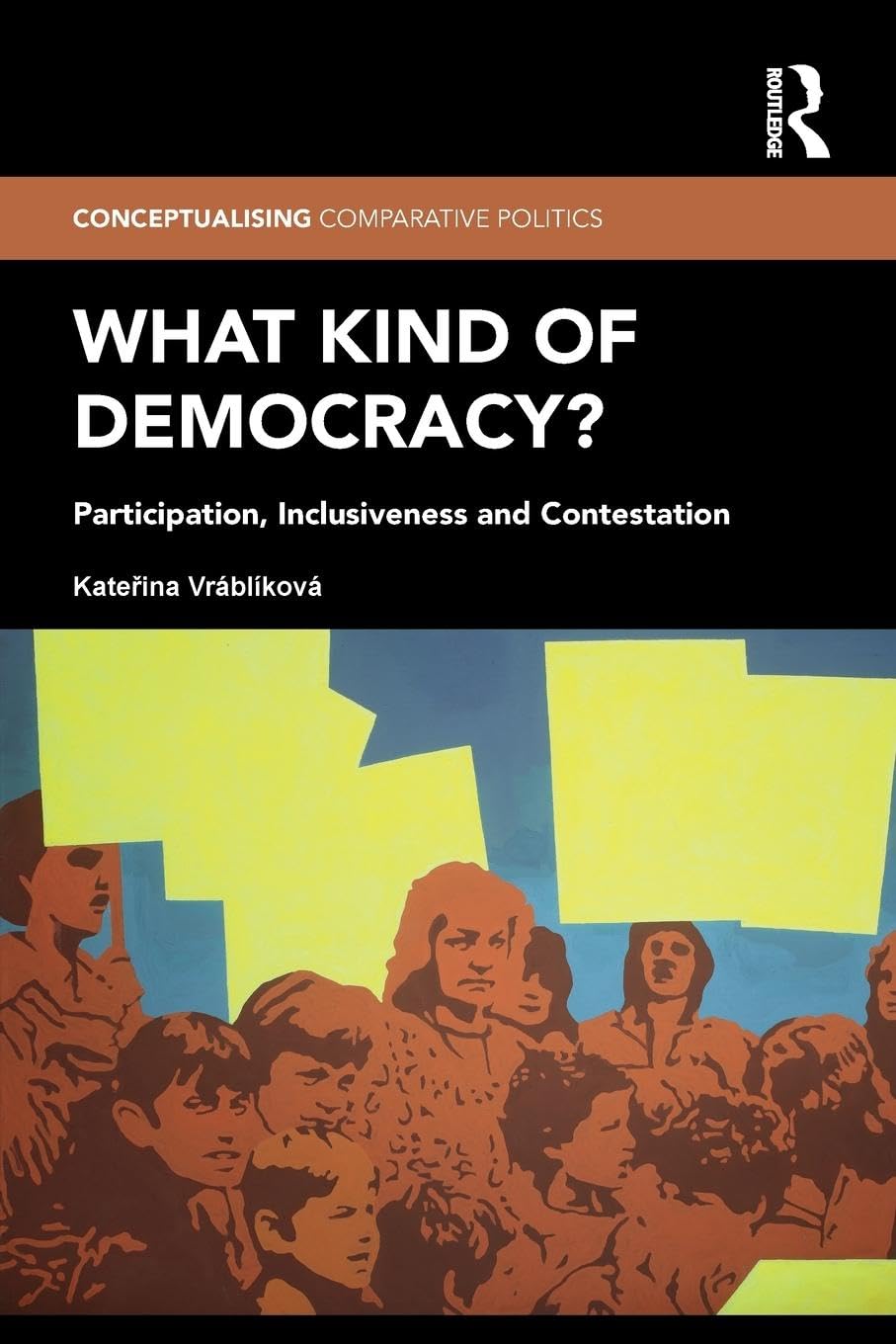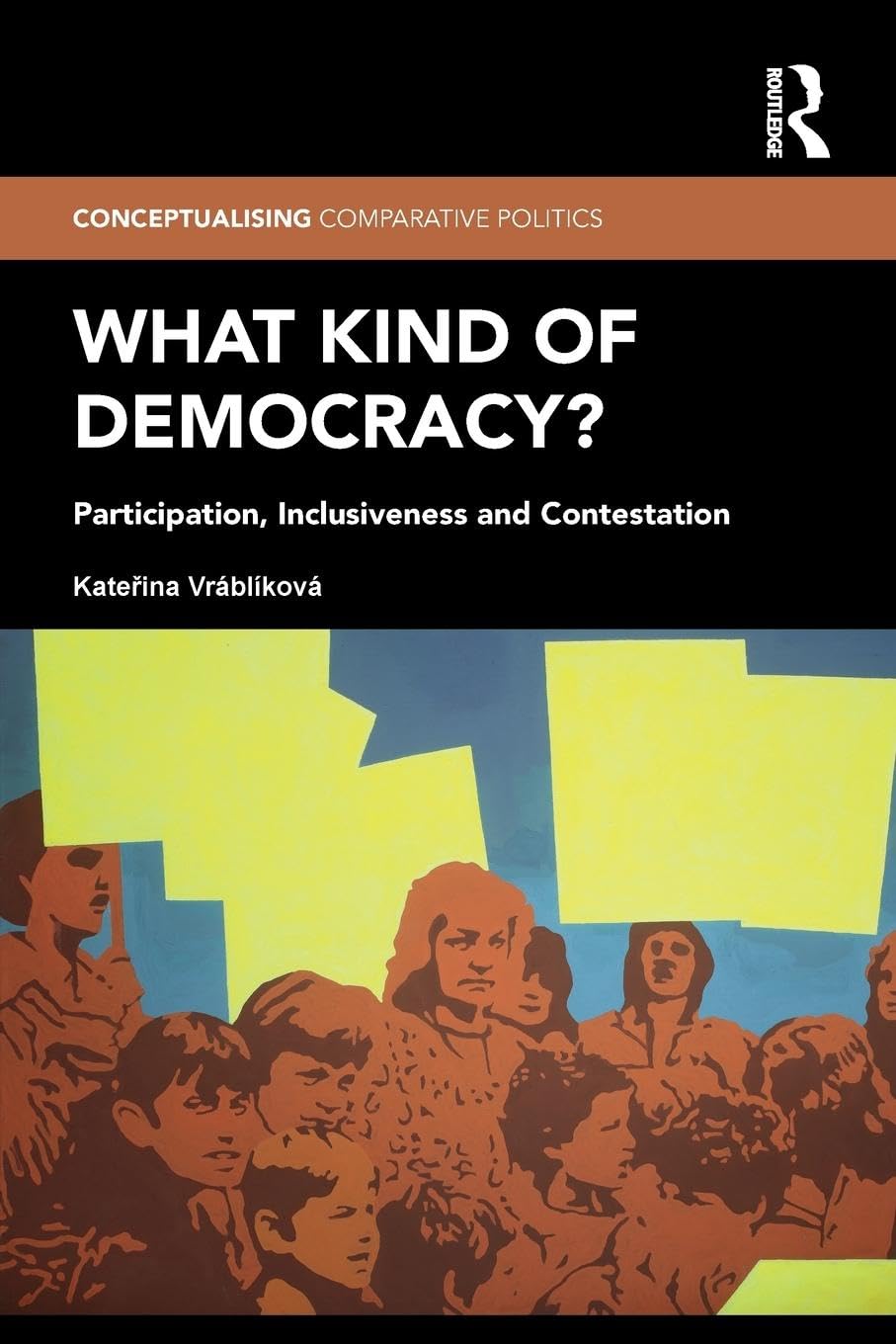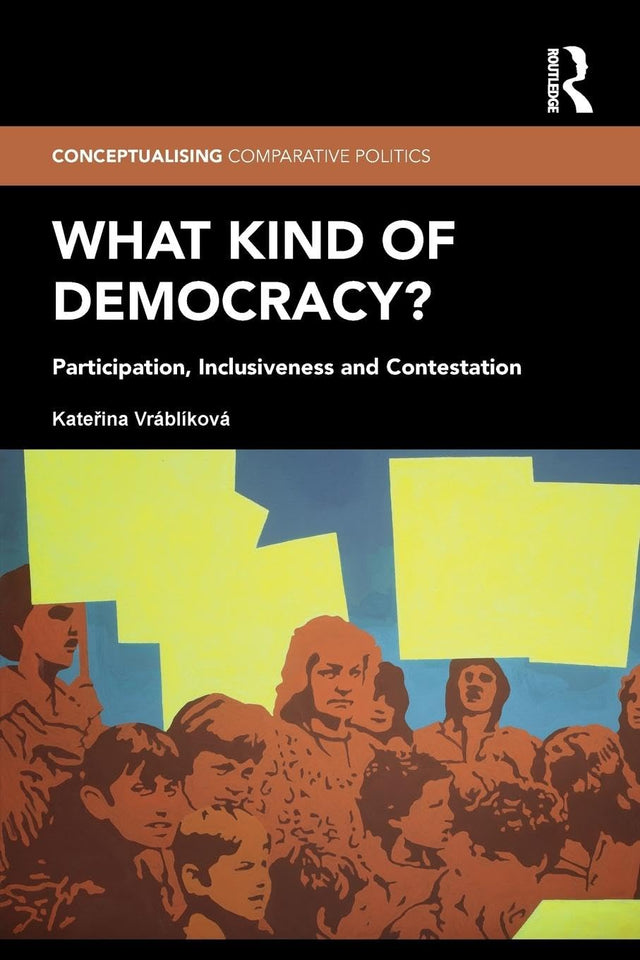What Kind of Democracy?: Participation, Inclusiveness and Contestation
What Kind of Democracy?: Participation, Inclusiveness and Contestation is backordered and will ship as soon as it is back in stock.
Couldn't load pickup availability
Genuine Products Guarantee
Genuine Products Guarantee
We guarantee 100% genuine products, and if proven otherwise, we will compensate you with 10 times the product's cost.
Delivery and Shipping
Delivery and Shipping
Products are generally ready for dispatch within 1 day and typically reach you in 3 to 5 days.
Book Details
-
Author: Katerina Vrblkov
-
Publisher: Routledge
-
Language: English
-
Edition: Reprint
-
ISBN: 9780367000233
-
Pages: 230
-
Binding: Paperback
-
Package Dimensions: 8.9 x 6.0 x 0.5 inches
About the Book
What Kind of Democracy? by Katerina Vrblkov offers a comprehensive analysis of non-electoral political participation and its growing importance in modern democratic societies. In the 21st century, non-electoral forms of political activism, such as protests, petitions, and social movements, have significantly expanded, influencing the way we view citizenship in democratic nations. Yet, these forms of engagement vary dramatically across different countries.
The book dives into the reasons behind these differences, focusing on the unique democratic structures in each nation. While citizen predispositions, social capital, and the nature of consensual democracy have been widely discussed, Vrblkov argues that the key to understanding these disparities lies in how inclusive and contested the democratic arrangements of a country are.
Through a theoretically driven empirical analysis, What Kind of Democracy? examines how different types of democratic systems foster or hinder participation in non-electoral politics. The book provides a critical insight into why political activism is thriving in some democracies, like the United States, while remaining relatively weak in others, such as the United Kingdom or post-communist countries like Bulgaria.
For those interested in political science, democracy studies, or the dynamics of citizen engagement, this book offers essential perspectives on how democratic structures shape political participation beyond the voting booth.





